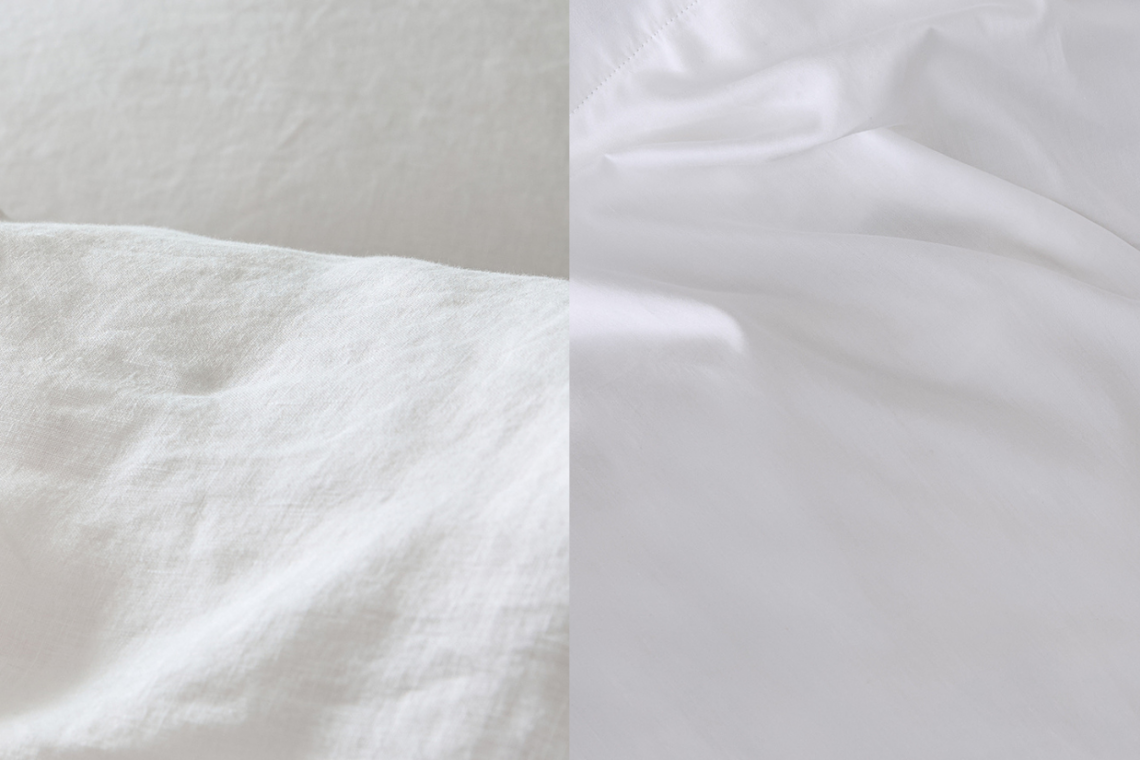
once & for all: linen or cotton bedding?
If your passion for bedsheets is anything like ours, prepare for your curiosity to be quenched. You may have asked yourself, what is the difference between cotton and linen? Is cotton or linen cooler? What are the pros and cons of each? Is linen soft? Which is better for your bed? We know there’s a lot to think about—let’s unpack it all and reach a verdict!
Bedding is an important investment that involves personal preference, and when trying to decide between these two reigning fabric contenders in the market, we can help. With 190 years of textiles expertise, we’ve trialled and tested countless fibres, thread counts, fabric weights, measures of durability and breathability… You name it. All to bring you the finest home comforts designed to elevate your quality of living and complement your contemporary lifestyle.
When it comes to similarities, both our cotton and linen are of the world’s finest quality and comfort. They’re both made from completely natural fibres, meaning they’re eco-friendly and work in divine harmony with our planet. But they also have some distinctly different qualities to offer when it comes to certain things…
linen
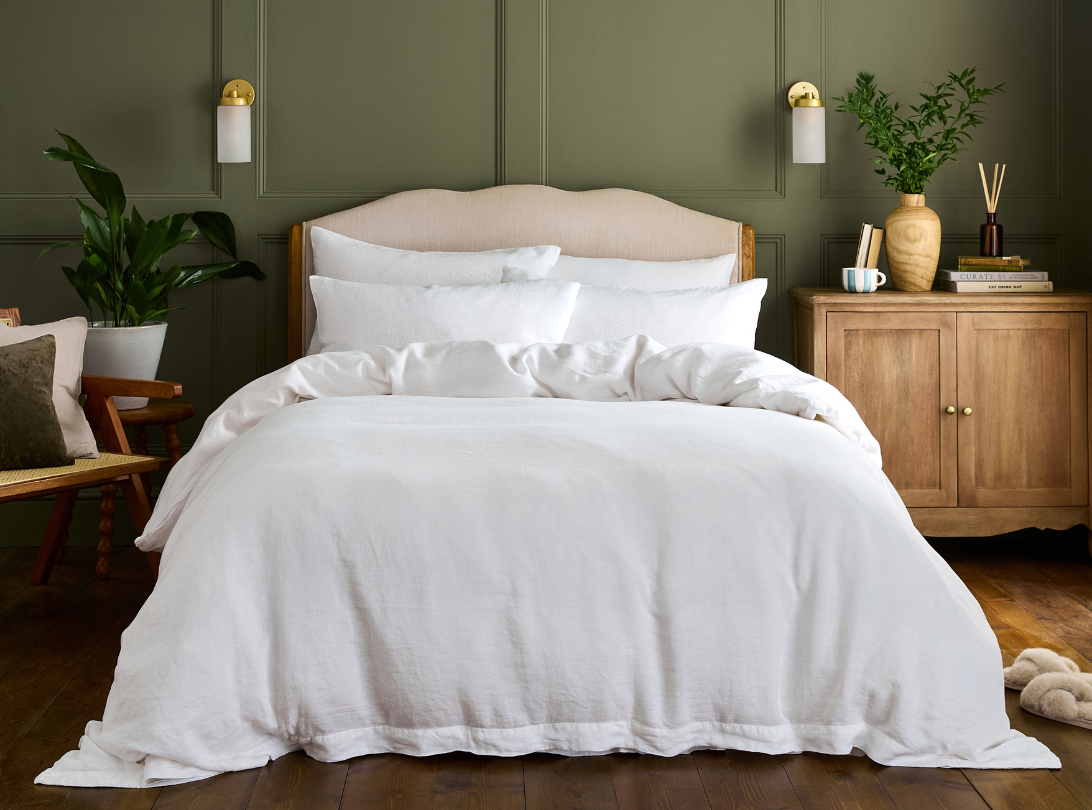
Linen’s looser weave and long, breathable, hollow fibres create a natural airflow that works with your body. Warm air lingers when you need it, and excess heat is whisked away when your body’s already warm enough. So, you’re kept cool in the summer and warm in the winter.
Known as nature’s moisture-wicking fibre, linen is highly absorbent. In fact, it’s able to absorb up to 20% of its own weight in moisture without ever feeling damp. It remains dry to the touch and gentle on skin all night. A lifesaver on those hot and humid summer nights!
In terms of texture, linen is famous for its luxuriously lived in look. The thicker, more loosely-woven fibres produce this perfectly imperfect, organic and slightly rustic look with beautiful variation in its texture.
While both cotton and linen bedding can become wrinkled with washing, drying and normal use, linen is generally the more wrinkly of the two. But this is part of its unique aesthetic appeal. If you love this effortlessly laid-back charm, embrace the crinkles—no ironing board required!
Famously, linen softens over time, meaning that the more you use your linen bedding, the more beautiful and soft it becomes.
With the demand for natural linen growing, we’re here to make the finest quality more accessible to you. Lapse into a snuggly slumber with your very own soft linen fabric bedding.
cotton
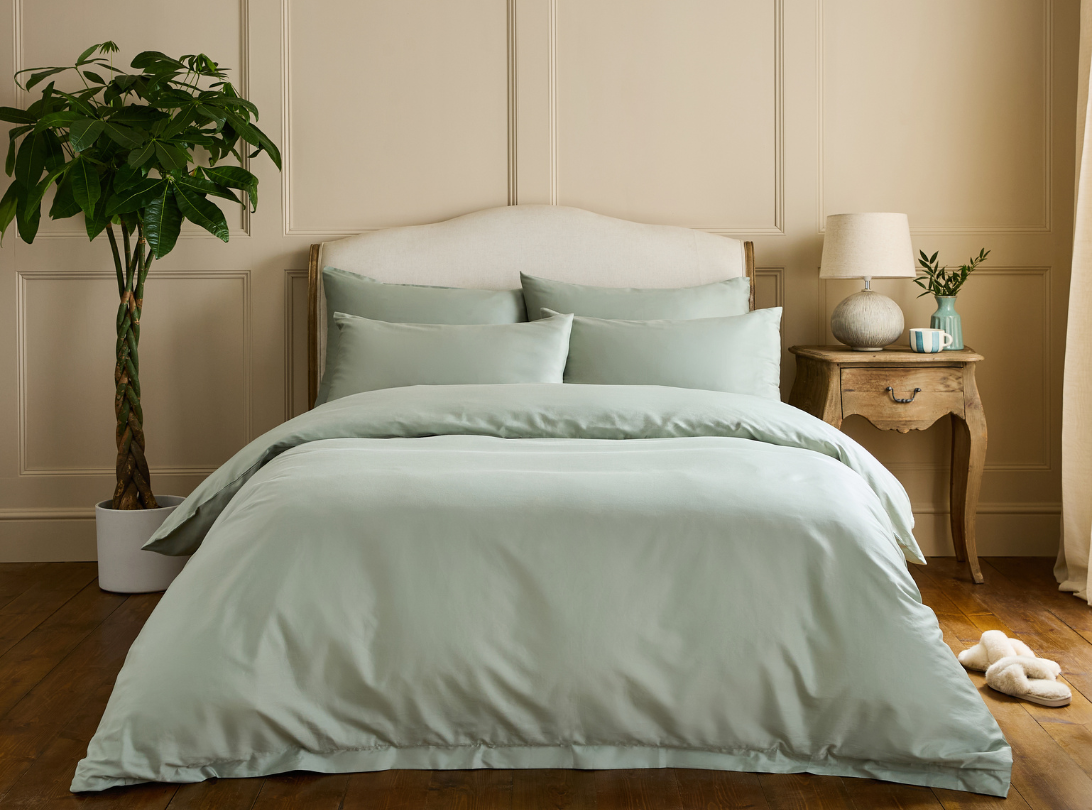
Cotton fibres are finer than linen’s, which means they weave together more tightly to create a smooth, polished finish. Less textured than linen, cotton has a classic look that many people love for its polished appearance.
Cotton is also a brilliant year-round choice. It holds onto warmth just a little better than linen, which makes it extra cosy during cooler months, yet it’s breathable enough to keep you comfortable all summer long. For those with sensitive skin, organic cotton is especially gentle—its soft, even texture won’t irritate conditions like eczema or rosacea.
The thing that differentiates cotton bedding is its weave. This refers to the way that the fabric’s threads were woven together, and yields different results in terms of look, feel, breathability and overall structure.
Our cool & crisp bedding (a percale weave) is cool to the touch, making it ideal for the summer months or warmer sleepers. It has a completely matte finish and is comparable to a freshly ironed shirt or most luxury hotel bed linen.
Our soft & smooth bedding (a sateen weave) is silky soft, smooth and cosy with a very subtle sheen from up close. It’s perfect for all year round use and it’s also naturally wrinkle resistant.
So whether you’re drawn to linen’s easy going texture or cotton’s timeless polish, both fabrics bring their own kind of comfort—it’s just about finding the feel you love most.
You May Also Like
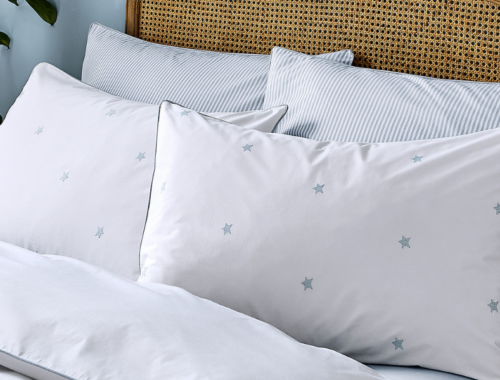
it’s time to clear the air: thought provoking insights you may not know about
June 5, 2019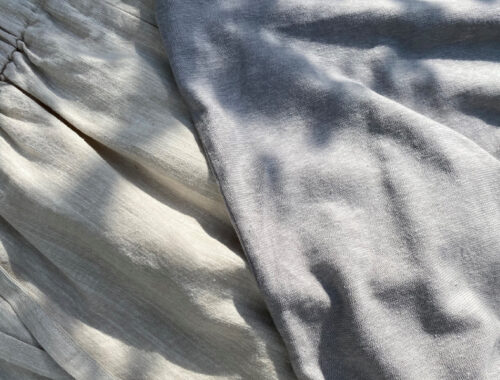
the beauty of hemp, & how to care for your loungewear
September 3, 2021


